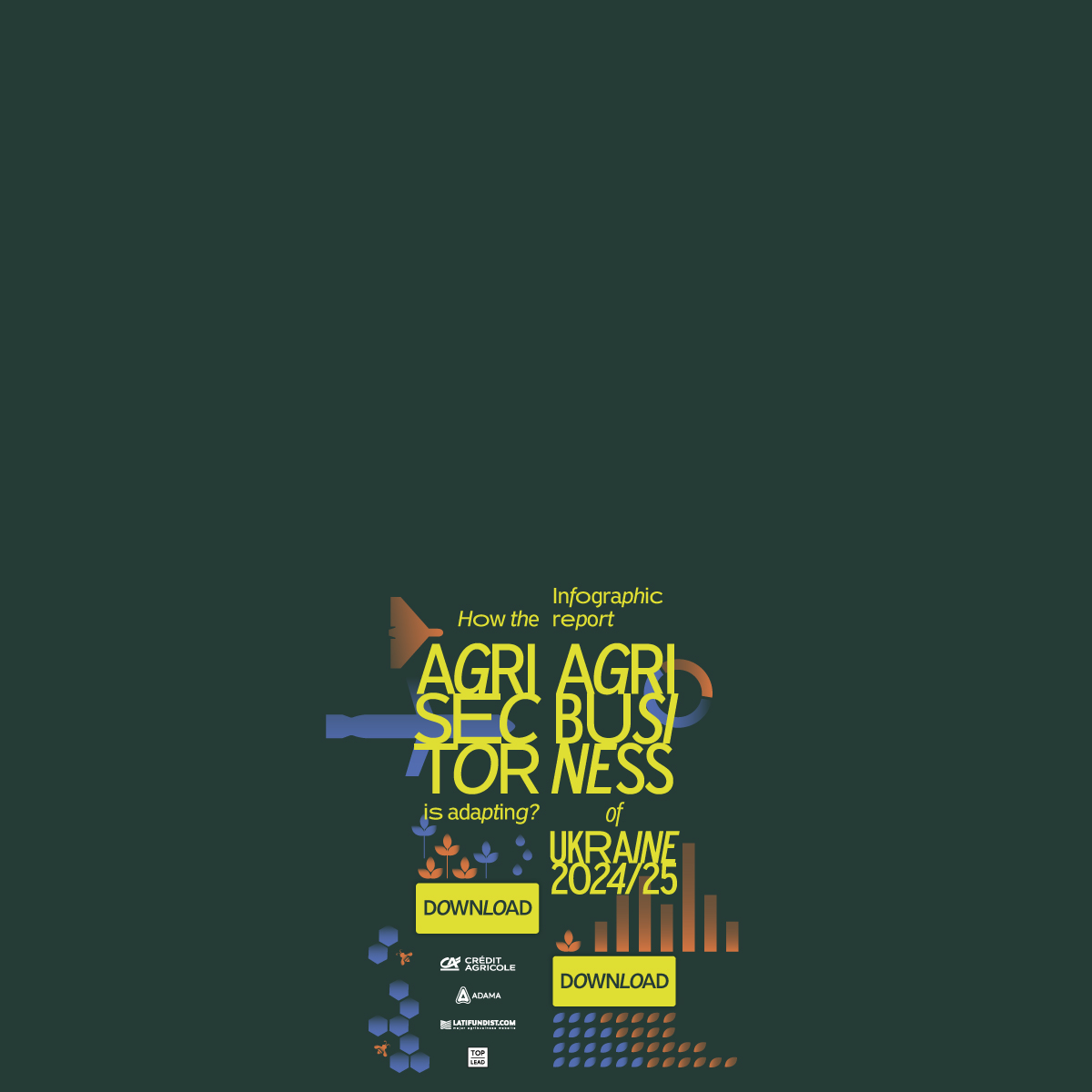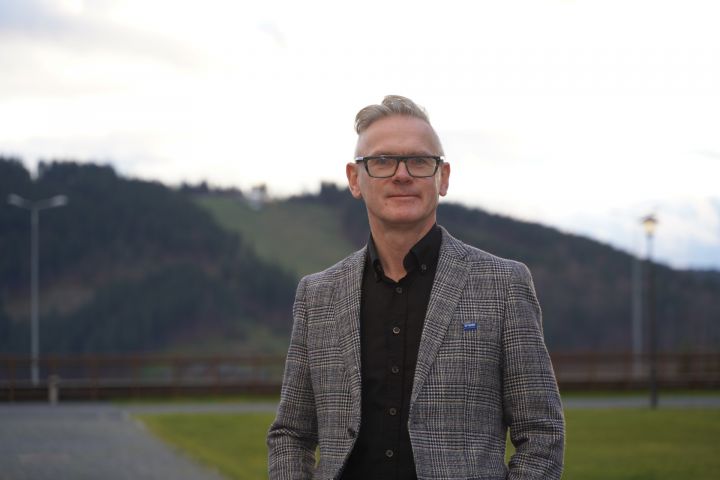BASF Is Ready to Adapt Its Ukrainian Portfolio to Meet European Union Standards — Cezary Urban
Cezary Urban was appointed as the Head of BASF Agricultural Solutions in Ukraine on October.1. He has been working at BASF for 18 years. Cezary is from Poland, but with the new appointment, he started to learn Ukrainian. We asked about the new products, the company’s targets in Ukraine, the distribution model in the near future, protests in Poland and much more.
As the conversation turned out to be long and informative, we divided the interview into two parts. In the first part, read about his career and the first money he earned, Cesar's tasks in Ukraine, the renewal of BASF's portfolio, and the model of cooperation with distributors that the company will build in Ukraine.
Career path and personal life
Latifundist.com: Tell us about your career path.
Cezary Urban: Before BASF, I worked at Merloni Indesit (now Whirlpool), a home appliance company. Initially, I handled first-sale trainings, progressed to being a sales representative responsible for customers, later became a regional sales manager, and eventually a sales manager overseeing a portfolio of built-in products.
After my career at Merloni, I was headhunted by the Polish publishing company Znak, one of the leading publishers in Poland. It was a completely different industry, and I assumed responsibility for managing the entire sales department, customer service, and logistics—a role with broad responsibilities that I held for five years.
Latifundist.com: And how did you come to BASF?
Cezary Urban: During this period of five years, I completed my MBA studies, and there were also changes in my personal life as my son was born. It was a time of consolidating my career, education, and private life. Around the fourth or fifth year in this role, in company Znak, I came to the realization that it wasn't the job I had dreamed for myself. I aspired for further development and considering that development opportunities are more prevalent in international companies, I began exploring options in the market. That's when I came across a job advertisement from BASF.
The position aligned with my experience, as my initial role at BASF was as a sales excellence manager, responsible for sales strategies in the Agro department in BASF Poland. One of the first major projects I undertook was defining a new market approach strategy for Poland and its distributors.
Latifundist.com: As we see now, you successfully coped with the first task.
Cezary Urban: Yes. As the outcome of this first project, I moved to the sales department, and my first position in the sales department was Key Account Manager, being responsible for nine distributors and approximately 30% of the sales in Poland. During this time, I really enjoyed working with distributors and being responsible for sales. This role spanned roughly four years, and then I had the opportunity for further development.
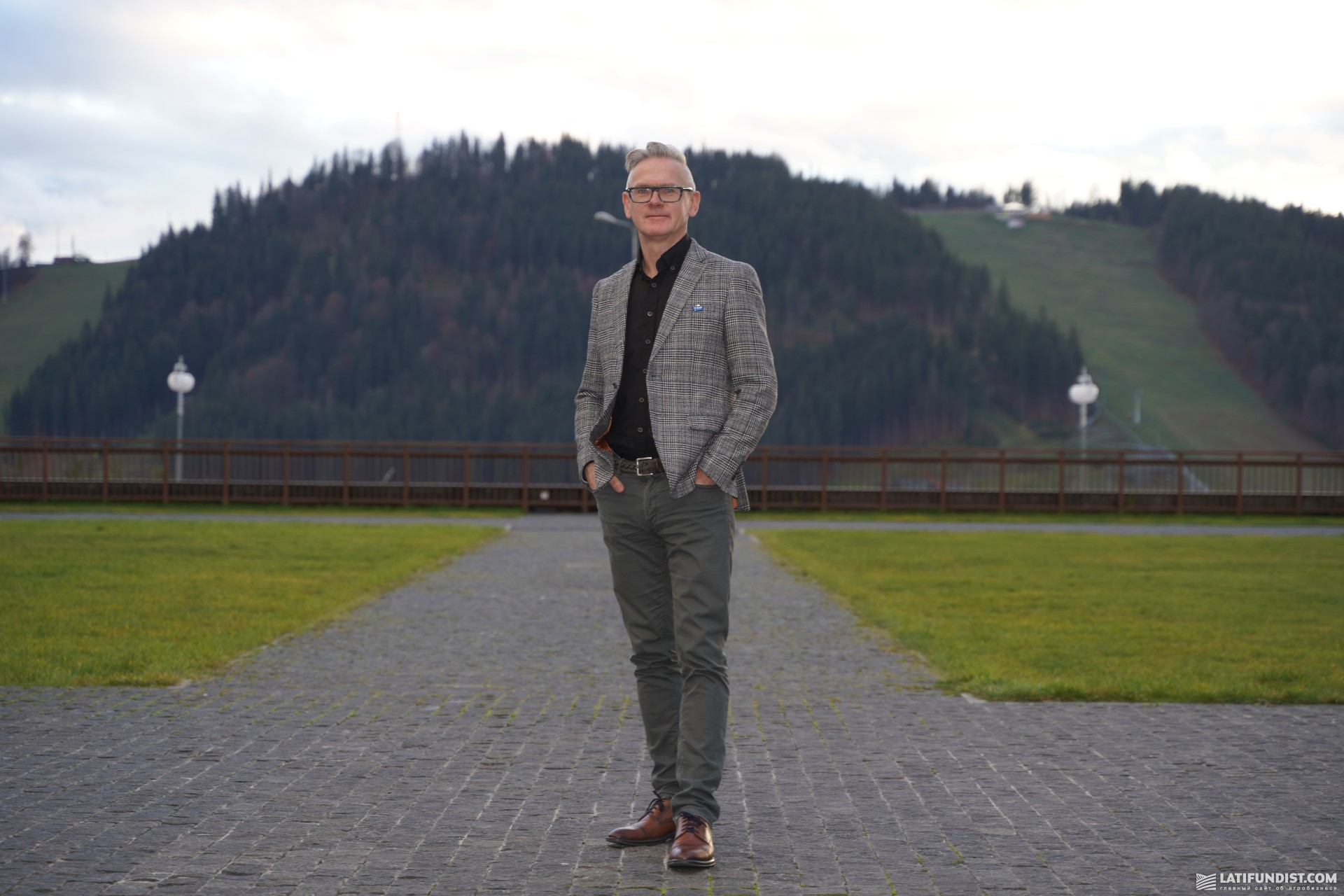
Latifundist.com: What was the next step of your growth in the company?
Cezary Urban: Then I was appointed to an international position at the sub-region level within the Central Europe structure. I assumed the role Head of Sales Excellence. Drawing on my initial experience at BASF and my Key Account Manager role, I was tasked with defining strategies in collaboration with sales managers in nine Central European countries, plus Turkey, which also fell under our region. Managing the strategy project for the Turkish market was a significant undertaking for me at that time.
Another major project that significantly influenced my career was the Sales Incentive Program. Collaborating with colleagues, I played a key role in changing the motivation system for salespeople within Central Europe and Europe as a whole. Running this project paved the way for implementing it in Poland after three years of working in Central Europe and residing in Prague, Czech Republic.
Another major project that significantly influenced my career was the Sales Incentive Program. Collaborating with colleagues, I played a key role in changing the motivation system for salespeople within Central Europe and Europe as a whole.
Latifundist.com: But later you returned to Poland again?
Cezary Urban: After these three years, I was appointed as the county manager for Polish agribusiness. This occurred exactly in 2014, nine years ago. In the initial years of this position, my team and I scrutinized our market approach strategy, identifying necessary changes. One of the most significant changes we implemented was the sales incentive program. Another crucial shift involved defining a strategy to compete for market share with medium and smaller-sized farms through retailers. Additionally, a major project we undertook was the digitalization project, establishing a digital connection with distributors and invoicing systems, primarily using SAP systems, tailored for the Polish market.
This system allowed us to monitor the daily stocks of BASF products, providing insights into the product flow in the market. This represented a substantial change for us in terms of market data, market intelligence, and the ability to steer the business within the season.
Latifundist.com: How did you choose your educational field and what was your child's dream?
Cezary Urban: I must say that I always aspired to be in business and had a keen interest in leading people. My initial experience in leadership dates back to when I was 10 years old, when my classmates voted for me to be the leader of the class, if you know what I mean.
Latifundist.com: Yes, in Ukrainian we say “starosta klasu”.
Cezary Urban: Yeah. And concerning business, my initial earnings came from a venture with my cousin. We were involved in selling fruits from our grandmother's orchard. It was a challenging job but incredibly satisfying, especially when we received the income.
Subsequently, during my education, I opted to pursue studies in agriculture. The primary motivation behind choosing agriculture was my genuine interest in biology, chemistry, and statistics. In agricultural studies, I found the perfect blend of these aspects.
Initially, I completed four years of engineering studies focused on pure agriculture. Driven by my interest in business, I then pursued a master's degree specifically in marketing in agriculture. Additionally, as mentioned earlier, I later completed an MBA program after a few years.
Latifundist.com: What were the most striking and interesting situations in your career?
Cezary Urban: For me, the most interesting aspect is always working with people because, with a team, leading becomes a dynamic and engaging experience. On the one hand, you encounter delightful situations, such as achieving leadership positions, which are essentially the outcomes of effective teamwork. On the other hand, there is a profound responsibility for each team member, particularly when dealing with a sizable team of around 80 or 90 people, as was the case in my previous team in Poland.
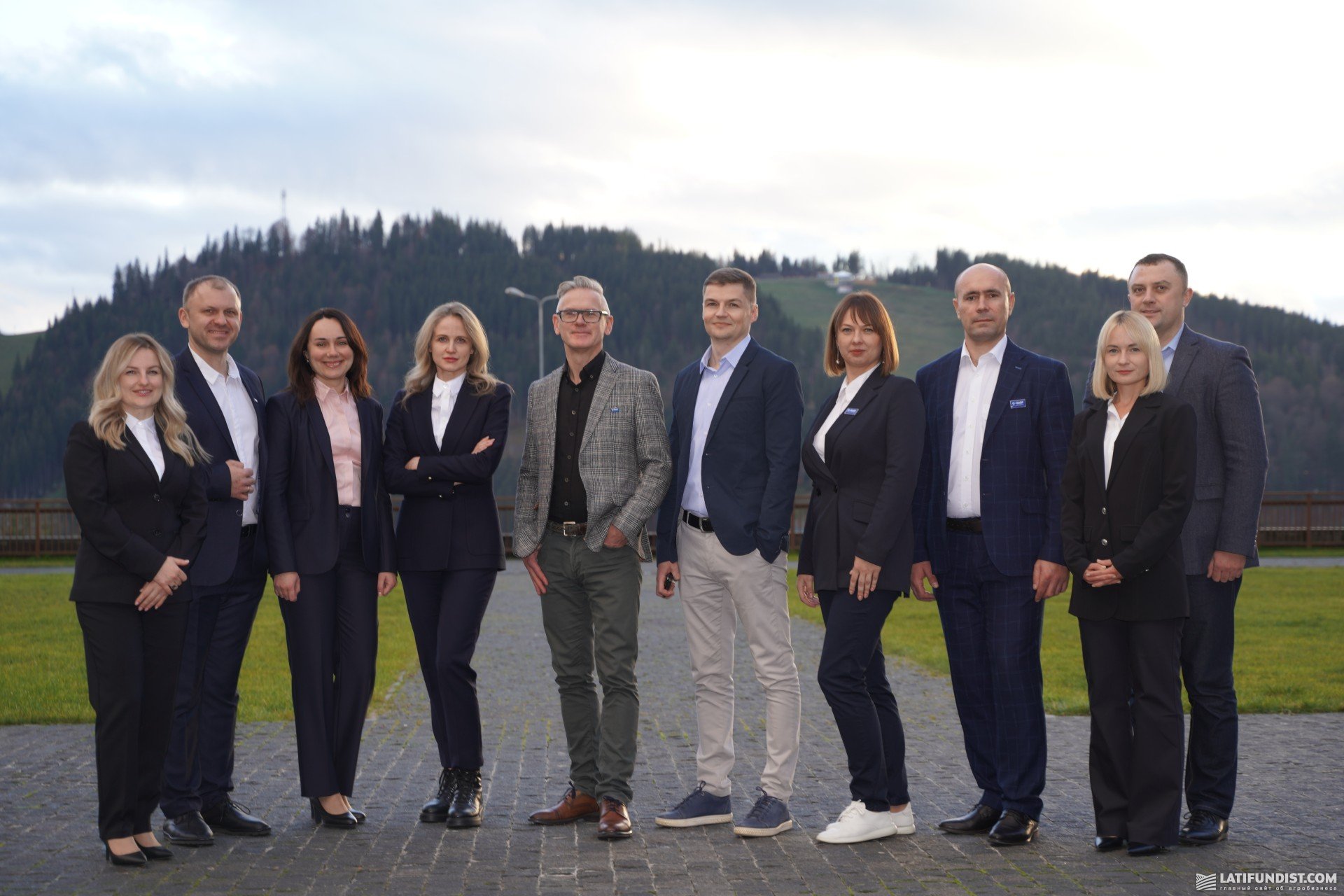
Managing a team of this size presents various challenges, foremost among them being the security of the team. For me, the safety and well-being of the team have always been of utmost importance. This encompasses both physical security and business security, the latter involving compliance to ensure that our operations align with the law, minimizing risks associated with corruption or other legal issues.
Another aspect of working with people that I greatly appreciate is the opportunity to contribute to their development. Over the course of these nine years, I take pride in the fact that almost one-third of the team, approximately 30 individuals, have experienced significant development and advancement, both locally in Poland and on an international scale, spanning various sectors within BASF. This is a substantial source of pride for me.
As I have mentioned earlier, the team is a driving force and a constant source of motivation. When it comes to the most significant challenges, I would highlight the restructuring of the distribution strategy in Poland. It presented a considerable challenge as we had to redefine the market segments for growth, identify strategic partners, and invest significant resources in developing relationships with customers who aligned with our strategy. This strategic investment allowed us to establish a robust distribution structure, reducing dependence on a few major players.
Latifundist.com: You are the director of BASF Agricultural Solutions in Ukraine from October 1st. What task has the management given to you as the head of this department?
Cezary Urban: I will start with the tasks I set for myself.
The first task is to learn Ukrainian. While we are conducting this interview in English, when communicating with my team, I always make an effort to use Ukrainian. I participate in all team meetings in Ukrainian. Although it is much easier for me to speak English, my primary goal is to become proficient in Ukrainian.
The first task is to learn Ukrainian. While we are conducting this interview in English, when communicating with my team, I always make an effort to use Ukrainian.
The second task was to familiarize myself with my team members. Given the size of the team, which comprises nearly 180 people, this was a considerable undertaking.
The third objective was to understand the Ukrainian market thoroughly. This understanding is crucial for making strategic decisions with my team.
Moving on to the tasks given by my superiors, awareness of the current situation in Ukraine, particularly the ongoing war, is paramount. Ensuring the security of the team and the business has been a primary focus, and I'm pleased to report that, thanks to the efforts of my predecessor and the team's management over the last 20 months of the war, we have been able to maintain this security.
Harmonization of the portfolio in accordance with EU laws
Latifundist.com: What is the next task after the security of the team?
Cezary Urban: Looking ahead, we are planning changes in our portfolio to align with the unique circumstances of the Ukrainian market. Understanding that Ukraine aspires to join the European Union, there are certain legal tasks and standards to consider, especially in the realm of crop protection law. Based on our experiences in other countries, we are ready to adapt our portfolio to meet European Union standards. This new portfolio is not only more efficient but also aligns with current European standards.
I anticipate that the coming years will serve as a transitional period for Ukraine as it navigates the path toward aligning with European laws. However, even now, for farmers aiming to compete in European markets and export grains, fruits, and vegetables, meeting European standards is crucial. We are well-prepared to support them in meeting these standards, including those related to residues and active ingredients.
Latifundist.com: And in this situation, will many crop protection products be banned in Ukraine?
Cezary Urban: Yes, if this accession journey begins, the consequence of this will be that many products, including our existing portfolio, will be banned in Ukraine.
Latifundist.com: Will the company remove these products from the portfolio?
Cezary Urban: Yeah, and we are also launching new products, which we are doing regardless of external factors. We introduce our innovations every year. The upcoming year will be particularly crucial for us as we plan to launch Revysol products in Ukraine. Revysol is our latest triazole, designed to meet all the necessary requirements and prove extremely efficient in crop protection.
About the distribution model in Poland and Ukraine
Latifundist.com: What was the most remarkable while you worked at BASF Poland?
Cezary Urban: When I began my role in Poland in 2014, BASF held the third position. Bayer was number one, Syngenta was number two, and BASF was number three. One of our primary goals was to ascend to the top position. After four years, we achieved the second position, and starting from 2021, continuing through 2022 and into this year, 2023, we have secured the position of market leader for three consecutive years. This accomplishment stands out as the most significant achievement for the entire team.
I'm not the biggest football fan, but it's something like winning the Champions League three times in a row.
Looking at these last nine years in Poland, it wasn't solely focused on agro. In the initial five years, I was dedicated to agro, leading the agro department. However, in 2019, I had the opportunity to spearhead a project in the construction industry, which was then part of BASF. The project involved separating this unit and establishing a completely independent legal entity, primed for investors. Subsequently, the company was sold, providing me with valuable experience. Firstly, delving into a new industry, and secondly, overseeing the process of creating a new legal entity, detached from BASF Polska, and successfully executing the sale of this company. This experience spanned nine months, during which I also retained partial responsibility for agro-business.
In 2020, after completing the construction industry project, I fully returned to agro. At that point, I assumed additional responsibility for Nunhems in Poland, focusing on vegetable seeds and the development of our seed portfolio. In 2018, we acquired the seeds and digital department from Bayer, marking a significant expansion from being solely a crop protection company to a full-scope company encompassing crop protection, seeds, and digital solutions.
Latifundist.com: What did this distribution strategy look like back then? How did you change it?
Cezary Urban: Nine years ago, our distribution landscape in Poland was characterized by a single dominant distributor who held significant importance for us, and we were equally crucial to them. This distributor held a dominating position, overshadowing more than 20 other distributors who struggled to compete. Complicating matters, we were aware that this distributor was developing their own crop protection products and registrations. Recognizing the need for independence, we made a strategic decision to seek other partners.
In the subsequent years, we carefully defined new partnerships, outlining how we intended to grow with them. Now, after these nine years, the distribution scenario has evolved. While the initial distributor remains substantial and influential in Poland, they have also achieved success with their own generic company. Simultaneously, we've been able to maintain our collaboration with this distributor while fostering the development of others, ultimately securing the number one position. This outcome exemplifies a classic win-win situation, underscoring the success of the strategy we implemented.
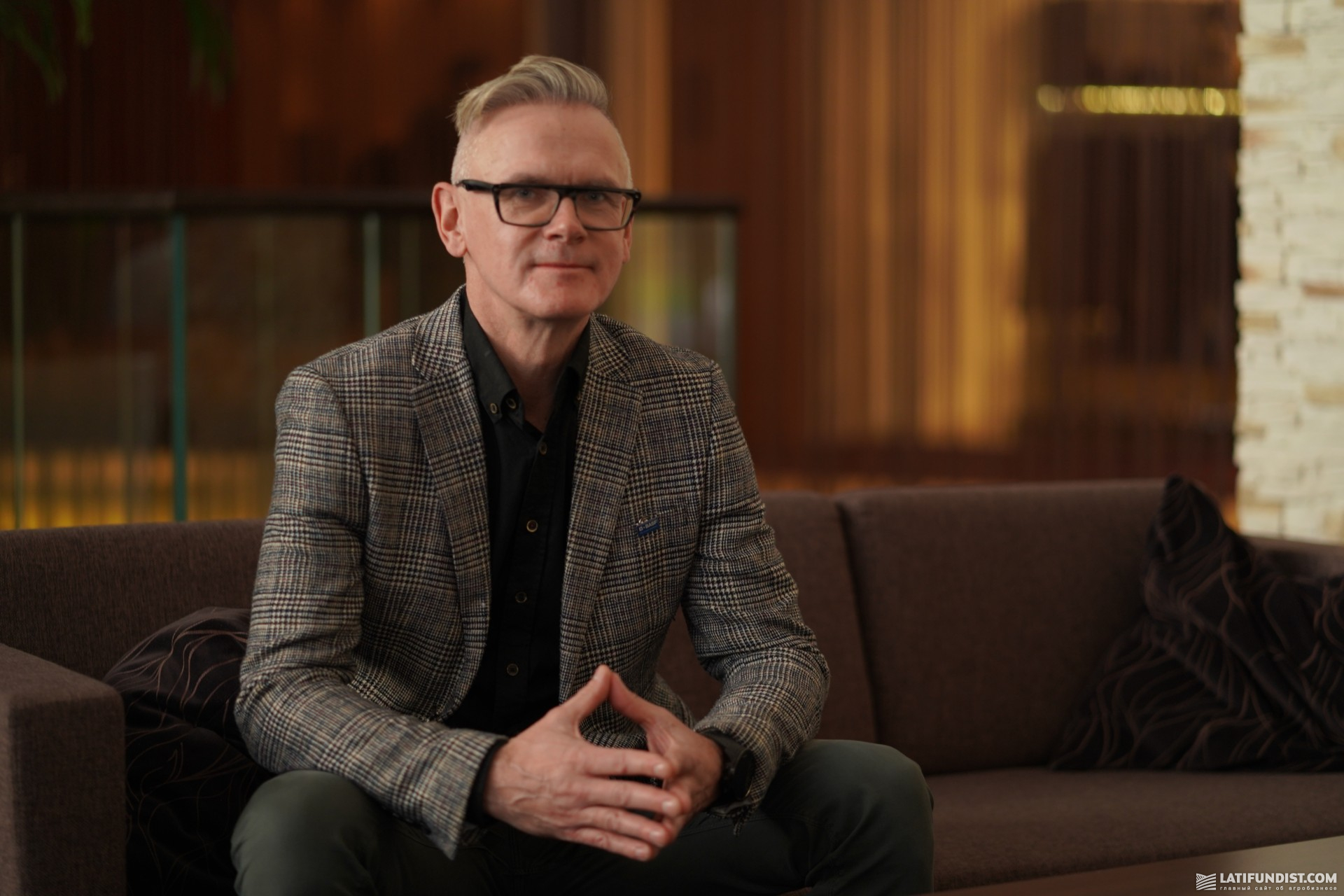
Latifundist.com: Will there be a new approach to distribution in Ukraine? Have you considered direct sales or will you work with distributors further?
Cezary Urban: So, first of all, regarding distributors and direct sales: distributors are very efficient in approaching farms, providing logistic services, financial services, and employing a significant number of salespeople. They can reach more farms than we can ourselves. Given this, if distributors want to grow with us and allocate a substantial share of their sales to us, which is our target in Ukraine, then we establish a partnership. If we have common goals of growth, I see no reason to go directly to the farms. This is our current strategy.
Looking to the future, we need to understand the direction in which Ukrainian distributors want to develop and how we can meet their needs, keeping in mind our growth objectives in Ukraine. Understanding the direction of Ukrainian distributors and finding common interests are crucial. Based on this understanding, we can prepare our offer, which is reflected in contracts. However, even more important to me is determining the kind of portfolio we need to develop together.
Looking to the future, we need to understand the direction in which Ukrainian distributors want to develop and how we can meet their needs, keeping in mind our growth objectives in Ukraine.
One of the opportunities for distributors, us, and the farmers is to leverage our combined offers, including a digital portfolio. Another solution is to be more specialized with some products dedicated to specific distributors. Hence, it's essential to know the potential of a certain distributor or group of distributors, define common goals, and work towards achieving them. In essence, there are many ways to reach these goals, and I strongly advocate for cooperation with strong partners and distributors as long as they align with our strategy.
Latifundist.com: Now you are in the process of building the model of work with distributors. And do you know it will be a 1 year contract or 3 year contract?
Cezary Urban: Here, I would say the duration of the contract may not be as important as the actual content and the definition of targets within the contract. The contract should be a result of a specific agreement. If we can outline a mid-term strategy with the distributors and both parties can agree to such terms, I'm comfortable with signing a multi-year contract, as we have done in Poland.
However, if forecasting the future becomes challenging, I prefer shorter contracts. The key is to ensure that the contract aligns with the goals and strategies of both parties, regardless of its duration.
Latifundist.com: What is your idea of an ideal distributor in Ukraine?
Cezary Urban: The ideal distributor, first of all, is well-known by their customers and understands their needs. Secondly, they should be financially capable of servicing and extending credit to customers. Thirdly, they should be able to support customers in solving problems, offering solutions like barter arrangements, providing training on grains, and maintaining efficient logistics to facilitate these processes.
Follow the link to continue reading the interview. In the second part, you will learn how BASF Agricultural Solutions will develop in Ukraine in the near future, what new products and support programs the company will introduce in the near future, and why Cezary Urban prefers the free market and is optimistic about a peaceful settlement between Ukrainian and European farmers.
Sofiia Yaroshenko, Latifundist.com
